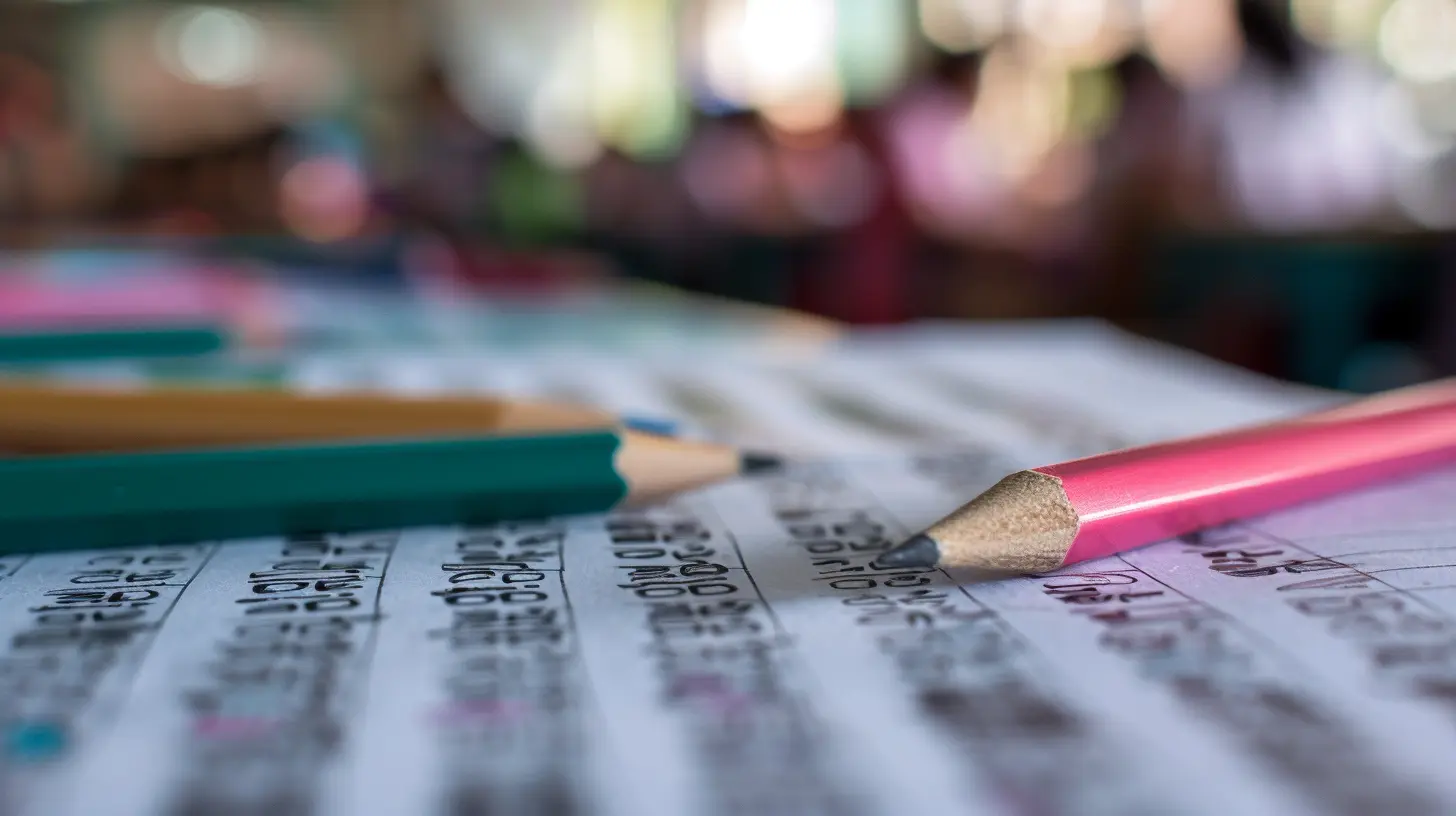The Science Behind Self-Assessment: How It Improves Learning Retention
19 September 2025
Ever finished studying a chapter, only to forget almost everything the next day? Yeah, we've all been there. You pour your heart into reading, highlighting, and maybe even watching a few educational YouTube videos, but when it comes time to recall that information—it’s crickets. The problem here isn't your brainpower. The real issue lies in how you're learning.
Enter self-assessment—a game-changing tool that can turn passive studying into active learning. Sounds fancy, right? But don’t worry, it’s not as complex as it sounds. In fact, once you get the hang of it, it feels like giving your brain a mini test drive before the real thing.
In this article, we're diving into the science behind self-assessment and how it supercharges your ability to remember what you’ve learned. So sit tight, grab a coffee (or tea), and let’s break it down.
What Is Self-Assessment, Really?
Before we geek out on the science part, let’s start simple. Self-assessment is just you checking in on your own understanding. It’s like being your own teacher. Whether it’s quizzing yourself after a study session, reflecting on a homework question, or rating how well you understand a topic—if you’re analyzing your own learning, you’re already doing it.It's not about playing “Gotcha!” with yourself. It’s more like saying: Hey, do I really get this, or am I just nodding along because it sounds familiar?
Why Traditional Studying Often Falls Flat
Let’s be real—most of us grew up thinking that just reading a textbook or taking notes is what learning looks like. It’s passive, and honestly, it tricks us. We feel like we know the material because we’ve “seen” it enough. But here’s the thing: recognizing information isn’t the same as remembering it or understanding it.Self-assessment, on the other hand, demands action. It’s like working out. You can watch all the fitness videos in the world, but until you hit the gym, those muscles aren’t going anywhere.
The Cognitive Science Behind It All
1. The Testing Effect: Your Memory’s Best Friend
One of the biggest scientific superstars in this conversation is the Testing Effect. In simple terms, this means that testing yourself helps you remember things better than just re-reading.Why? Because retrieval—actively pulling information out of your brain—strengthens memory. It’s like carving a deeper path in your brain each time you recall something. The more you test yourself, the clearer that path becomes.
Imagine your memory like a trail in the woods. The more often you walk it, the more visible and easy to follow it gets. That’s the Testing Effect in action.
2. Metacognition: Thinking About Your Thinking
Ever had that "Wait, do I actually know this?" moment? That’s metacognition, or your ability to think about your own understanding.Self-assessment taps directly into this. When you reflect on what you’ve learned, you’re building the skill of metacognition. And better metacognition = smarter studying. You stop wasting time on stuff you already know and focus on what needs more attention.
It’s like being the coach and the player at the same time—seeing the big picture while still doing the work.
3. Immediate Feedback Loops
Feedback is fuel. When you check your answers or reflect on your performance, you're creating a feedback loop. This helps you quickly spot the gaps and correct them.Without feedback, mistakes go unnoticed. With self-assessment, you catch them early and fix them fast.
How Self-Assessment Improves Learning Retention
Now that we’ve got the brainy stuff out of the way, let’s talk about what this actually does for your learning journey.1. It Turns Learning Into a Two-Way Street
Instead of just absorbing info like a sponge, you start having a conversation with what you’re learning. It’s the difference between watching a movie and acting in one—you’re involved.2. It Keeps You Honest
We all love to feel smart. But sometimes, that feeling gets in the way of actual learning. Self-assessment forces you to face the truth: Do I really get this, or am I just going through the motions?The best part? Even if you don’t know something yet, now you know what you need to work on.
3. It Builds Confidence (The Real Kind)
There’s false confidence—what you get from memorizing definitions—and then there’s real confidence, which comes from knowing that you know your stuff. Self-assessment builds the latter.When you quiz yourself and get it right, that’s a mental high-five. And it tells your brain, “Hey, I’ve got this!”
Practical Ways to Start Self-Assessing Today
Alright, convinced that self-assessment is worth a shot? Good. Now let’s look at how to actually use it without overcomplicating things.1. Use Flashcards (The Right Way)
Flashcards are more than just vocab drills. They’re retrieval machines. But here’s a tip: Don’t just flip them passively. Always try to recall the answer before turning the card. Struggle a little. That tension? It’s what builds the memory.2. Summarize in Your Own Words
After a reading session, put your notes away and try to explain the topic to someone like they’ve never heard it before. Use analogies. Get creative. If they get confused, you found a patchy spot in your own understanding.3. Keep a Learning Journal
Jot down what you studied, what clicked, what felt fuzzy, and what you want to revisit. It doesn’t need to be fancy—just honest. Over time, this becomes a goldmine of insight into your learning process.4. Take Practice Quizzes
These don’t even have to be official or fancy. Just Google or create your own mini-tests based on the material. Time yourself. Review your answers. Boom—you’re self-assessing.5. Rate Yourself on a Scale
After each topic, give yourself a “confidence score” from 1–5. If you’re at a 2, don’t move on just yet. This simple scale creates self-awareness—and helps point you to where the real work needs to happen.Busting the Myths About Self-Assessment
Let’s clear the air on some common misconceptions before we wrap up.Myth 1: Self-Assessment Is Only for Smart Students
No way. It’s a tool, not a talent. Anyone can use it—whether you're struggling or already acing your classes. In fact, the people who use it consistently become the smart students.Myth 2: It Takes Too Long
You know what takes a long time? Re-reading the same page five times and still not getting it. Self-assessment actually saves time because it helps you figure out exactly where to focus.Myth 3: It’s Stressful
It doesn’t have to be. Remember, self-assessment isn’t about judging yourself—it’s about helping yourself. It’s like checking your GPS while driving. You're just making sure you're still on the right path.A Pep Talk Before You Go
Look, learning isn’t always easy. But it can be smarter. Self-assessment gives you control over your own education. It says, “I’m not waiting to be tested. I’ll test myself first.” That mindset? It’s powerful.So next time you study, don’t just sit there soaking it all in. Ask yourself questions. Reflect. Quiz yourself. Begin building those memory trails in your brain.
The best learners aren’t the ones who know it all—they’re the ones who keep checking if they actually know it. And that? That’s the real secret to learning that sticks.
You've got this.
all images in this post were generated using AI tools
Category:
Self AssessmentAuthor:

Anita Harmon
Discussion
rate this article
1 comments
Ulrich McKee
Absolutely love this! Self-assessment is like giving your brain a fun workout, making sure those learning gains stick around. It’s like turning your learning journey into a game—who knew reflecting on what you know could be so rewarding? Time to flex those mental muscles and see the results! 🧠💪
October 4, 2025 at 12:46 PM

Anita Harmon
Thank you! I'm glad you enjoyed it. Self-assessment really does turn learning into an engaging process that enhances retention. Keep flexing those mental muscles! 🧠💪


